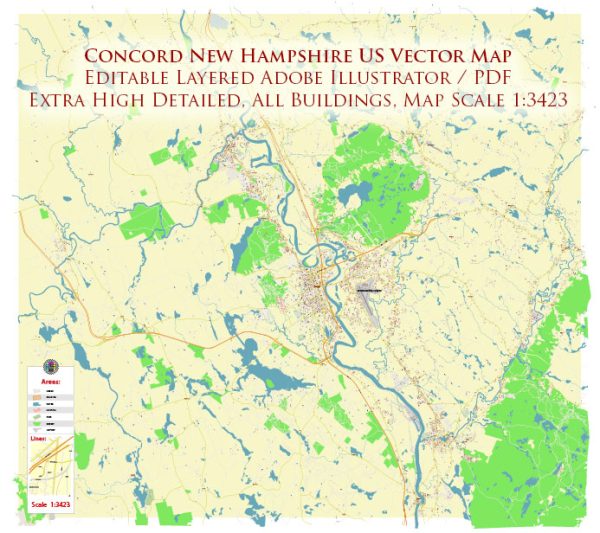Concord, New Hampshire, has a rich history that is closely intertwined with the broader history of the United States. Here’s a brief overview of Concord’s historical significance:
- Early Settlement and Colonial Era: Concord was first settled in the early 17th century by European colonists. It was originally known as “Penacook,” derived from the Native American Pennacook tribe, who inhabited the region. In 1734, it was officially incorporated as a town under its current name, Concord.
- American Revolution: Concord played a pivotal role in the American Revolution. In 1774, it was the site of the famous “Powder Alarm,” where patriots successfully prevented the British from seizing a local supply of gunpowder. On April 19, 1775, during the Battles of Lexington and Concord, British troops marched to Concord with the intention of seizing colonial arms. This event marked the beginning of the American Revolutionary War. The Old North Bridge in Concord is a significant historical site associated with this conflict.
- State Capital: Concord became the capital of New Hampshire in 1808, a position it still holds today. The State House, completed in 1819, is an iconic building that stands as the oldest state capitol in the United States in which the legislature meets in its original chambers. The State House is a prominent landmark in the city and a symbol of New Hampshire’s government.
- Industrial and Economic Development: In the 19th century, Concord saw significant industrial and economic development. The city became known for its manufacturing industries, including textiles, furniture, and machinery. The arrival of the railroad in the mid-1800s further boosted Concord’s growth and connected it to broader markets.
- Abolitionist Movement: Concord was also a hub for the abolitionist movement in the 19th century. It was the home of several prominent abolitionists, including William Lloyd Garrison and Stephen Symonds Foster, who advocated for the abolition of slavery.
- Literary and Cultural Contributions: Concord has a strong literary heritage, with famous authors like Ralph Waldo Emerson, Louisa May Alcott, Nathaniel Hawthorne, and Henry David Thoreau having lived or spent time in the area. The transcendentalist movement, with its emphasis on self-reliance and nature, was influential in Concord.
- Modern Era: In the 20th century, Concord continued to develop as a center for government, commerce, and education. It is known for its high-quality schools, cultural institutions, and a thriving downtown area.
Today, Concord is a vibrant city that blends its historical significance with modern amenities and a strong sense of community. It remains a center of government, culture, and education in New Hampshire and a place where residents and visitors can explore its rich history.



 Author: Kirill Shrayber, Ph.D. FRGS
Author: Kirill Shrayber, Ph.D. FRGS